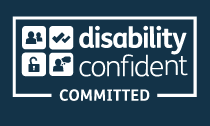Given the fact we live and breathe web accessibility here at Recite we are always on the look out for those who share our passions. We found the following article by Gosia Mlynarczyk, an Accessibility Consultant for Nomensa, on their humanising technology blog, and thought it was worth sharing.
One quote we feel needs to be highlighted in neon and underlined for all to see, is the statement that: “it is estimated that around 10% of the population worldwide has a disability that affects Internet use.
This means accessibility affects potentially over 600 million people worldwide. Hardly a demographic anyone should ignore. The seven accessibility myths discussed in the blog are that (we recommend reading it in full):
- Accessible websites are ugly and boring – Accessible websites are only ugly and boring if you really want them to be;
- Web accessibility is expensive, time-consuming & hard to implement – Creating them doesn’t take years, cost a fortune and/or require an army of geniuses;
- Accessible sites only benefit small percentages of people – They benefit few people. Few billions in fact;
- Web accessibility is optional – Web accessibility is totally optional, if you don’t mind being sued and taken to court;
- Web accessibility is the sole responsibility of developers – The Web would be a better place, if we all stopped pointing fingers and took the responsibility;
- Automated evaluation tools are enough – Until artificial intelligence reaches the level of human intelligence, automated accessibility testing is not enough;
- Making websites accessible doesn’t have any additional benefits – Web accessibility comes with many freebies.
Now why would you say no to that?
Gosia also pointed out that the case against BMI Baby by the Royal National Institute of the Blind (RNIB) is not an isolated one, and is therefore something all companies ought to be considering. BMI Baby and the RNIB agreed to work together, out of court, and we were saddened to see BMI ceased operations earlier this month after British Airways couldn’t find a buyer. We hope other travel companies will try and pick up where they left off, without the need for another law suit. In fact British Airways themselves are working with AbilityNet a leading accessibility charity to review their websites accessibility. Text to speech software solutions, like Recite, is one of the most effective, unobtrusive solutions to ensuring instant accessibility.
Other examples of this kind of action were pointed out in the blog post. In Australia, in 2000, the Olympics organising committee were sued by a blind man over their inaccessible website, and in America, “target.com and, recently, netflix.com were also successfully sued” over their websites.
The internet is as much a part of modern life as mobile phones, air travel, and roads. No one should be denied access. No one should be left outside in the cold.
Recite Me recently launched our very own accessibility checker for websites, allowing you to easily identify and fix accessibility issues. Additionally, you take your dedication to inclusivity one step further and install the Recite Me accessibility plugin today.



